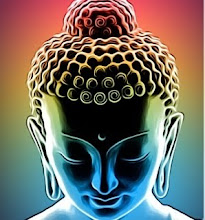Dr. Lin Yutang explained it this way: " 'Non-Self' does not mean that entities as they are commonly perceived do not exist; it means that the concept of 'self' has no referent which has absolutely independent existence. The contents of all our experiences are phenomena resulting from a combination of various conditions; these phenomena change following changes in their constituent conditions, hence they have neither absolutely independent existence nor autonomy. Any denotation or labeling is just a relative cognitive activity of artificial naming and delimitation in the inseparable entirety of our experiences."
To put it a little more simply, the human brain lumps together perceptions into groups, and categorizes these aggregations of sensations in such a way that we think they are actually separate, when in fact, they are interrelated and inseparably linked. These aggregations of the physical body (or "form"), feelings, ideas, impressions and consciousness are transient and ever-changing, and can be known only in relation to other forms/feelings/ideas/etc. There is no permanent self or soul.
The practical importance of non-self is the principle of interrelatedness. Since you and I, and all beings, are part of the same swirling, everchanging mass of phenomena that make up the universe, we can never really think of our"selves" as separate from other beings. We are the universe. We are the earth. Whatever I do to myself, I do to everyone and everything. All actions (and inactions) will affect subsequent events.
John Donne said it well:
- "No man is an Iland, intire of it selfe; every man is a peece of the Continent, a part of the maine; if a Clod bee washed away by the Sea, Europe is the lesse, as well as if a Promontorie were, as well as if a Mannor of thy friends or of thine own were; any mans death diminishes me, because I am involved in Mankinde; And therefore never send to know for whom the bell tolls; It tolls for thee."
- —from "Meditation XVII" of Devotions Upon Emergent Occasions
>< >< >< Namaste.

No comments:
Post a Comment